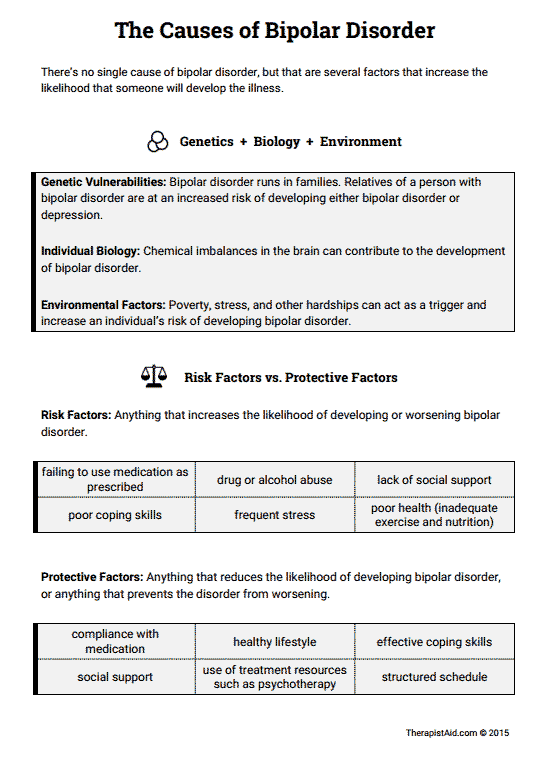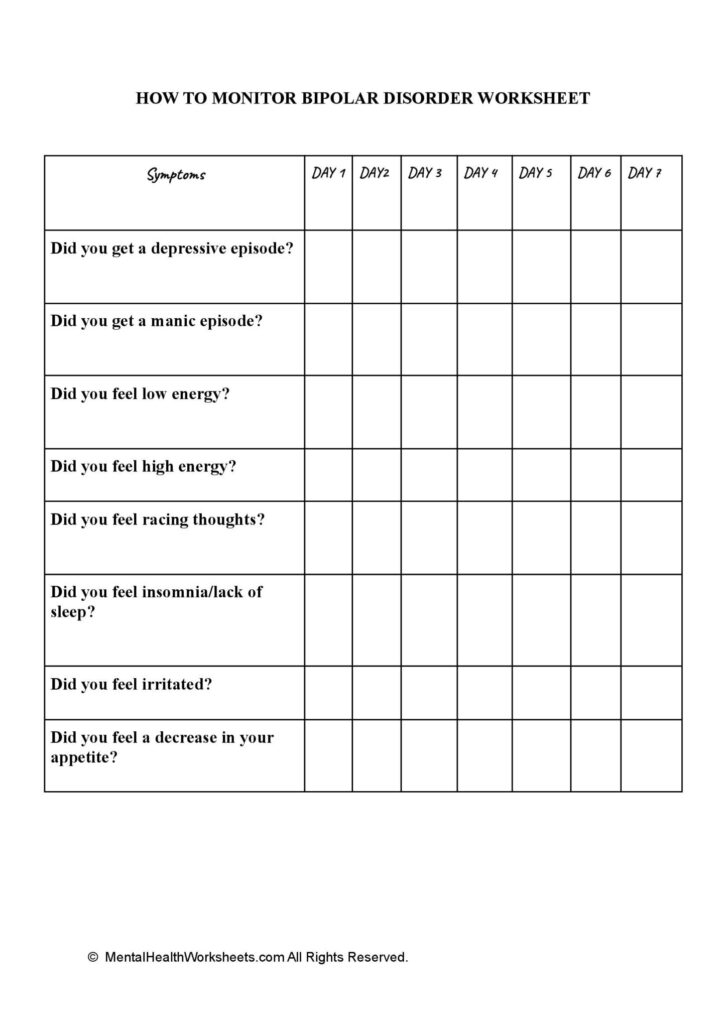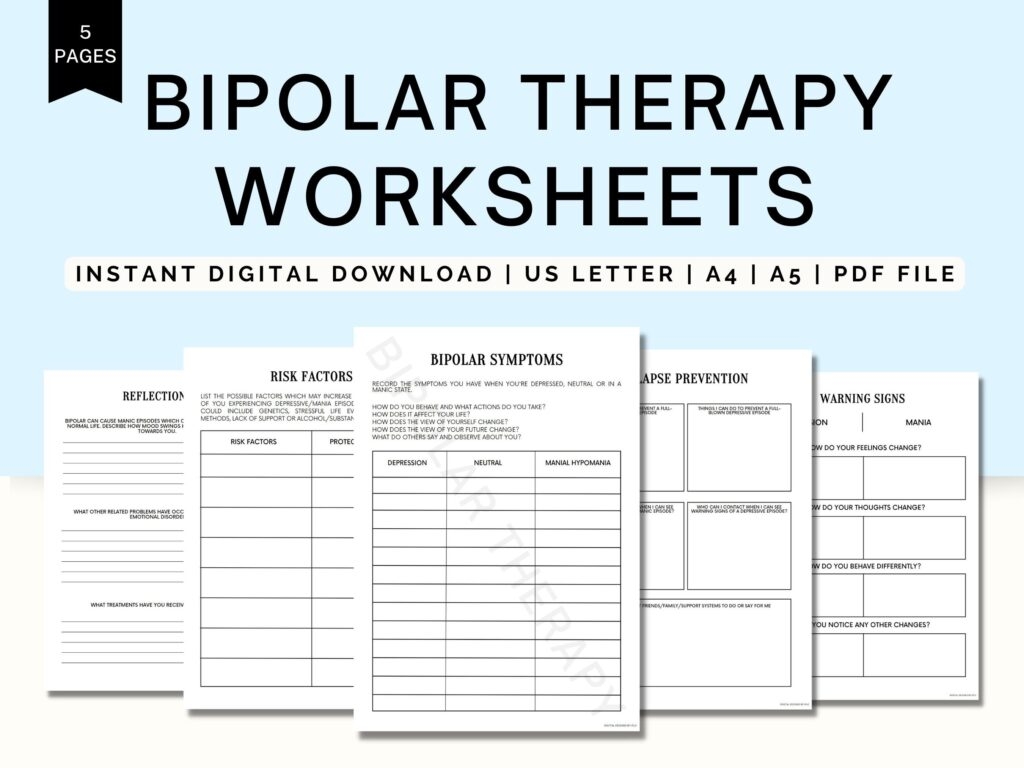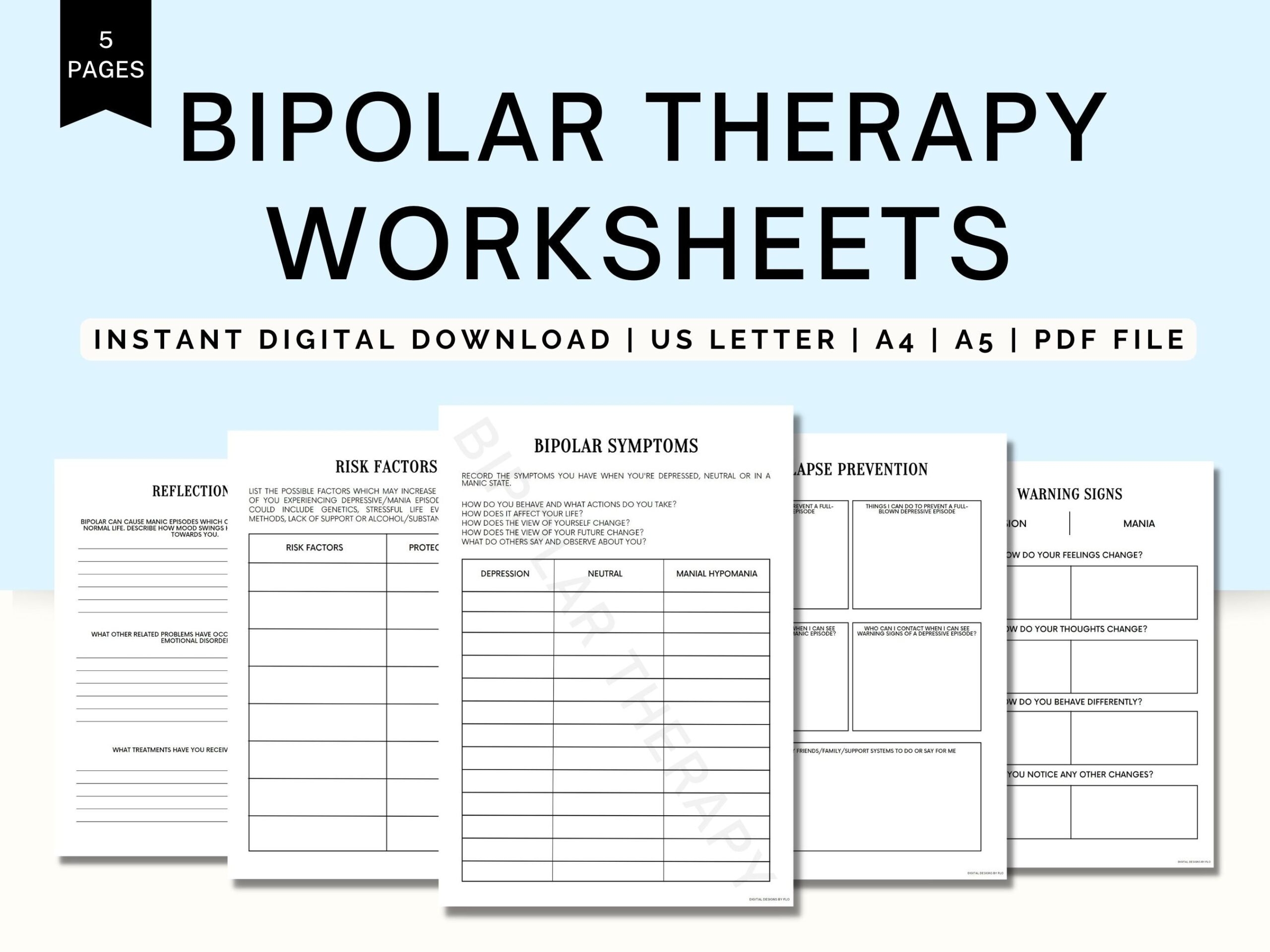Bipolar disorder is a mental health condition that causes extreme mood swings that include emotional highs (mania or hypomania) and lows (depression). Managing bipolar disorder can be challenging, but there are resources available to help individuals cope with their symptoms. One effective tool is the use of bipolar disorder worksheets, which can assist in monitoring mood changes, identifying triggers, and developing coping strategies.
Worksheets are a useful way for individuals with bipolar disorder to track their emotions and behaviors over time. By recording daily mood fluctuations, triggers, and symptoms, individuals can gain a better understanding of their patterns and how they are affected by different factors. This self-awareness is crucial in managing bipolar disorder and can help individuals and their healthcare providers make informed decisions about treatment and lifestyle modifications.
One common type of worksheet used in bipolar disorder management is a mood chart. This chart allows individuals to track their mood on a daily basis, noting whether they are experiencing mania, hypomania, depression, or a stable mood. By consistently filling out the mood chart, individuals can identify trends and patterns in their mood swings, which can inform treatment plans and interventions. Additionally, mood charts can help individuals recognize early warning signs of a mood episode and take proactive steps to prevent a full-blown episode.
In addition to mood charts, worksheets can also help individuals identify triggers that may exacerbate their bipolar symptoms. By keeping a record of daily activities, stressors, and environmental factors, individuals can pinpoint common triggers that lead to mood swings. Once triggers are identified, individuals can work with their healthcare providers to develop strategies for avoiding or managing these triggers effectively.
Furthermore, worksheets can be used to develop coping strategies for managing bipolar symptoms. By completing worksheets that focus on problem-solving, cognitive restructuring, and relaxation techniques, individuals can learn how to better cope with the challenges of bipolar disorder. These exercises can help individuals build resilience, improve emotional regulation, and enhance their overall quality of life.
In conclusion, bipolar disorder worksheets are valuable tools for individuals with bipolar disorder to track their mood, identify triggers, and develop coping strategies. By using worksheets as part of a comprehensive treatment plan, individuals can gain insight into their condition, improve self-awareness, and enhance their ability to manage their symptoms effectively. If you or someone you know is struggling with bipolar disorder, consider incorporating worksheets into your treatment regimen to support your mental health and well-being.



